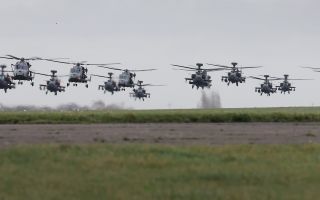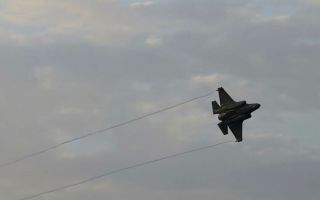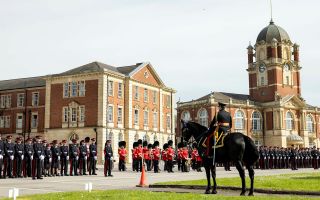Comment: Labour And The Trident Whimper
There are lots of things for Labour to talk about after the revolutionary election of their new leader, Jeremy Corbyn.
Austerity and tax, the NHS and schools. When party members voted on contemporary motions they also picked one about the BBC licence fee. Yet Britain's nuclear deterrent, a 'guarantor of our security' and a 'weapon of mass destruction', failed to get enough support for a debate and vote.
We were expecting fireworks over Trident, we got little more than a whimper.
At first glance it seemed surprising that this conference chose not to debate an issue that arouses so much passion from both sides, an issue of principle for so many, and an issue that divides this party.
But I'm beginning to wonder if the delegates who choose the motions for debate decided no good could come of discussing this divisive issue so publicly.
The Trident question has not been solved for Labour, it has been put off. The plan for resolving it could be the biggest test of Jeremy Corbyn's new approach to getting party members more involved in policy making, of compromise, and persuading rather than forcing agreement.
His Shadow Defence Secretary, Maria Eagle, is a long standing supporter of Trident and told a fringe meeting when Mr Corbyn called to offer her the job she had to double-check that he remembered her position on the issue.
In her maiden speech in the job there was an olive branch to Labour members who want Britain to ditch nuclear weapons as she told delegates "I recognise and respect the different views in our party on the future of our nuclear deterrent."
We were promised an open and public-facing debate on the issue, but with such firmly held views on both sides, and such firmly held views by the leader, it will take some significant mind changing or a new kind of politics for Labour to resolve this question.
Labour does at least have time to deal with that, Syria on the other hand requires some imminent decisions.
With the government hoping for parliamentary backing to extend its airstrikes against Islamic State (IS) it was a question that had to be addressed at this conference.
Hilary Benn, the Shadow Foreign Secretary, has long said his party would consider any proposal put forward by the government on its merits. His conference speech was carefully written, apparently in a joint effort with Jeremy Corbyn who has never voted in favour of deploying British forces.
Mr Benn said it was no longer good enough for the world to say 'this is too difficult', but "We need a much broader, more comprehensive plan than just trying to deal with ISIL/Daesh. This will require political, diplomatic and humanitarian will too."
You could read his speech as an argument against airstrikes, or very much for them as part of the right package. Once again the top of the Labour party is leaving the door open for individuals to decide.
Some might call it equivocating, not something that Shadow International Development Secretary Diane Abbott could be accused of after telling the conference "Nothing has held back development in many parts of the world more than ill fated military intervention, and that is why I will be voting against bombing Syria". That was not a voice of compromise.









